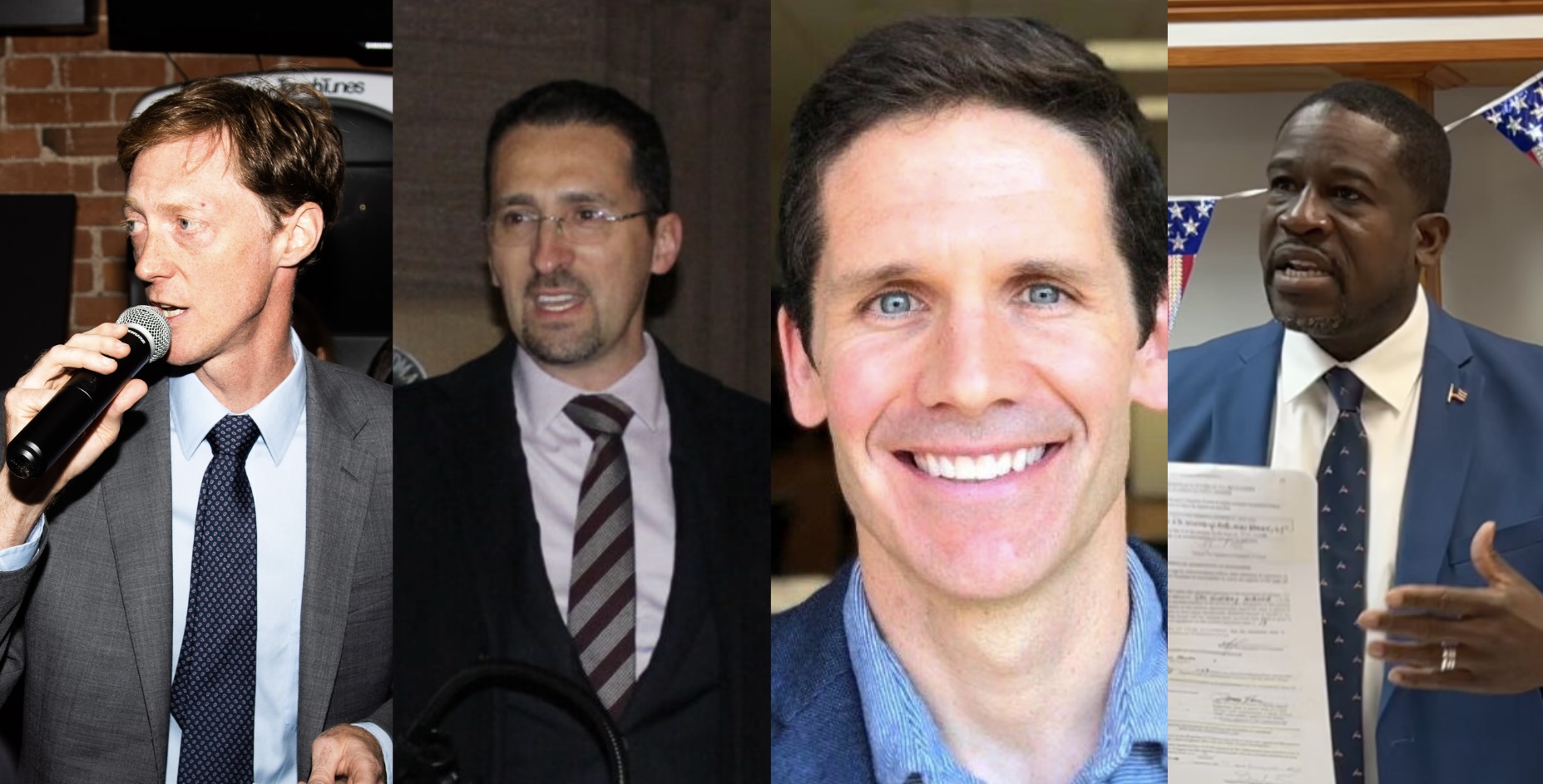New Haven’s mayoral candidates disagree over economic policy
As this year’s mayoral race heats up, the candidates are hoping to sell their economic visions to voters in the face of a housing crisis and rising cost of living.

(Left to right) Lukas Flippo, Senior Photographer; Yash Roy, Contributing Photographer; Courtesy of Liam Brennan; Hannah Kotler, Contributing Photographer
A host of economic issues ranging from New Haven’s budget to property tax rates are on the ballot this election as incumbent Mayor Justin Elicker hopes to win reelection against a handful of opponents.
Following a first quarter that only saw 0.3 percent economic growth state-wide, the city’s economy is at a critical juncture as it recovers from COVID-19 and uplifts the growth of several industries including biotechnology and pharmaceuticals. All the mayoral candidates agreed that these sectors have the opportunity for rapid growth and expansion, but there are disagreements between the candidates on how to best unlock the opportunities these industries might bring.
Elicker said he sees equitable economic development as a top priority for the city’s future.
“We want to make sure that as New Haven continues to grow that everyone benefits from that growth,” he said. “That’s everything from passing an inclusive zoning ordinance to the expansion of grants that we have available for particular small entrepreneurs and business owners who are Black, Brown or women.”
Both Liam Brennan, who is challenging Elicker in the Democratic Primary on Sept. 12, and Tom Goldenberg, who is running on the Republican ticket after failing to make the Democratic ballot, agree with Elicker on the importance of minority representation in economic growth.
Shafiq Abdussabur, who petitioned onto the November ballot after failing to secure a spot in the Democratic Primary, did not agree to an interview with the News.
Goldenberg highlighted what he saw as the ineffectiveness of current programs that aim to reduce the racial wealth gap.
“I found that the largest racial disparity in business ownership is in the Black population,” he said. “We have programs to address this, but they are simply not working. We need more action.”
Goldenberg said he believes that the best way to promote growth and diversify the workforce is by allying the city with Yale, which has played a pivotal role in attracting biotechnology research.
Ultimately, if elected, he said he hopes to create 50,000 jobs within the next ten years.
There are currently 84,023 people between the ages of 20 and 64 employed in New Haven according to the United States Census Bureau.
After hearing Goldenberg’s job creation goal, Elicker shared his skepticism.
“Considering that New Haven has around a tenth of the number of people that are currently unemployed that Mr. Goldenberg thinks he can create jobs for … the concept of 50,000 jobs sounds nice to people but it’s just a ridiculous number he pulled out of thin air,” Elicker said.
Brennan, who touted his time spent investigating public corruption as Hartford’s inspector general, said he views New Haven’s economic future through the lens of housing and sustainability.
“There’s a huge intersection between housing and economic development and a lot of the other issues we are confronting,” he said. “We do have a climate emergency. The city has emergency powers to do anything that cuts down on local carbon emissions. We should be using those powers to promote certain types of development.”
Brennan specified investments in housing and infrastructure as immediate city priorities. He is also a proponent of selling municipal properties and creating user fees to generate revenue. Those user fees would act as a tax for non-New Haven residents.
Elicker told the News he believes that these two initiatives are far weaker than Brennan makes them out to be.
“We realized that user fees would not increase revenues even close to the amount we would need to really move the dial,” said Elicker, who estimates that the user fee would generate between $200,000 and $300,000 each year.
The mayor added that the city also does not have enough properties to sell unless New Haven were to package “city streets, city parks and city schools.” These properties, if bought by Yale, would also be exempt from property taxes, Elicker argued, cutting New Haven off from a future revenue source.
Yale bought portions of High and Wall Streets from the city in a deal worth $3 million as part of an expansion plan in 2013.
Brennan and Elicker will face off in the Democratic Primary on Sept. 12, while Goldenberg has under two months of campaigning left before polls open for November’s general election.
The mayor’s office is located at 165 Church St.







